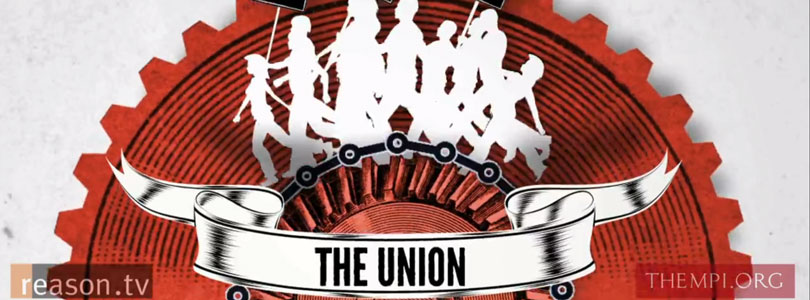Slow Adjustment to the Teacher Union Machine Continues in Chariho
This video by Evan Coyne Maloney succinctly presents a critical part of the small-government, free-market perspective on one of Rhode Island’s most intractable difficulties:
The machine by which teachers’ unions turn public dollars into union-organization profits and political patronage is clear and unambiguous. One could argue that the process is for the better, for one reason or another, but Coyne Maloney accurately follows the money.
The pressure that builds up as the machine operates over decades can be observed in local budget difficulties and even the pension crisis looming over towns, cities, and states nationwide. In Rhode Island, we’re ahead of the downward-sliding curve in part because our regulations and laws have acted like grease.
It’s in the laws, such as that requiring annual step raises for teachers in their first decade or so. It’s in the structure of local government, giving school committees the power to negotiate contracts, but not the responsibility to raise the money (making it easier, too, for unions to stack both sides for their negotiations). And it’s in the haphazard rules that seek to regulate that complication — notably, the Caruolo Act, empowering school committees to sue their towns for additional resources.
In recent years, particularly with the economic downturn, the budgetary pressure has been so great that reform has been seeping out gaps in established policy via the judiciary:
- In 2009, School Committee of City of Cranston v. Bergin-Andrews specified that school committees must follow a series of steps before they can sue under the Caruolo Act.
- In 2010, East Providence School Committee v. East Providence Education Association affirmed that expired teacher contracts do not inherently take precedence over other budget line items under a school committee’s control.
- In March of this year, Town of North Kingstown v. North Kingstown School Committee warned school departments that they cannot overspend their budgets as the first step toward a Caruolo suit and indicated that towns, through their municipal budgets, can make certain school appropriations “contingent” upon revenue (such as state aid).
The latest test of the boundaries has emerged in the Chariho district:
The National Education Association-Chariho has filed a complaint with the Rhode Island Labor Board, accusing the Chariho School Committee of breaking the law in not honoring teachers’ scheduled salary increases. NEA-Chariho says it will also file a complaint with the Rhode Island Department of Education. …
On Aug. 21, after eight months of bargaining, the school committee decided that until a new collective agreement has been signed, salary increases as well as other provisions in the expired contract — bonuses for longevity and for teachers with advanced degrees, for example — will be suspended.
To anybody with private-sector experience negotiating — or just with an intuitive sense of how the adversarial negotiation process might work — it may not be immediately clear how revolutionary this is. The practices of, one, continuing most contract terms for however long it takes to arrive at a new agreement and, two, awarding retroactive raises once a new contract has been signed have long been among the policies greasing the machine.
Chariho’s move clearly and rationally shifts some advantage to the school committee, and moving forward, its example will surely reduce the likelihood of union intransigence. In turn, it will reduce the frequency of teacher strikes and “work to rule” actions, whereby teachers refuse to undertake any tasks not explicitly required by their contracts.
What complications exist may hinge on semantics. Because the Rhode Island General Law explicitly calls for annual step raises, the fact that the Chariho school committee “froze” the steps and other pay might make a difference to a judge looking to draw the boundaries more tightly. The committee would likely have had a stronger legal case if it had instead “reduced” the steps to some much-smaller amount. The “freeze” permitted in the law is not a freeze in place, but a freeze of the next step to which a teacher would leap.
Regardless of the outcome, teachers’ unions and (more especially) the teachers themselves might do well to consider the lesson from this accelerating series of challenges. The machine’s historical operation cannot continue, and if pressure is not relieved at a sufficient pace, it may prove that more would have been preserved through greater openness to change.



